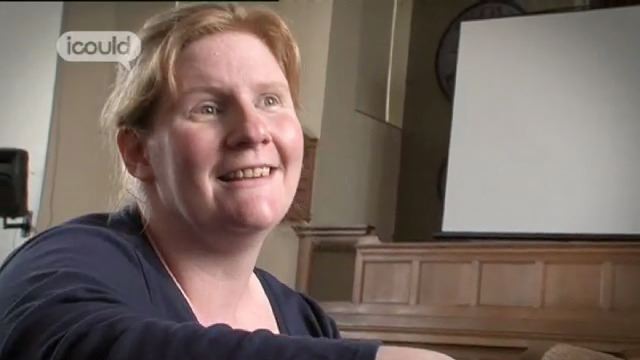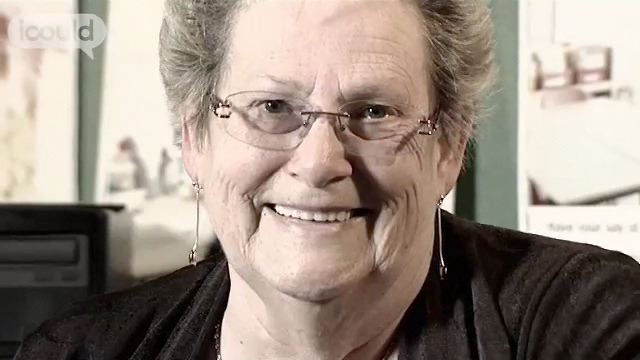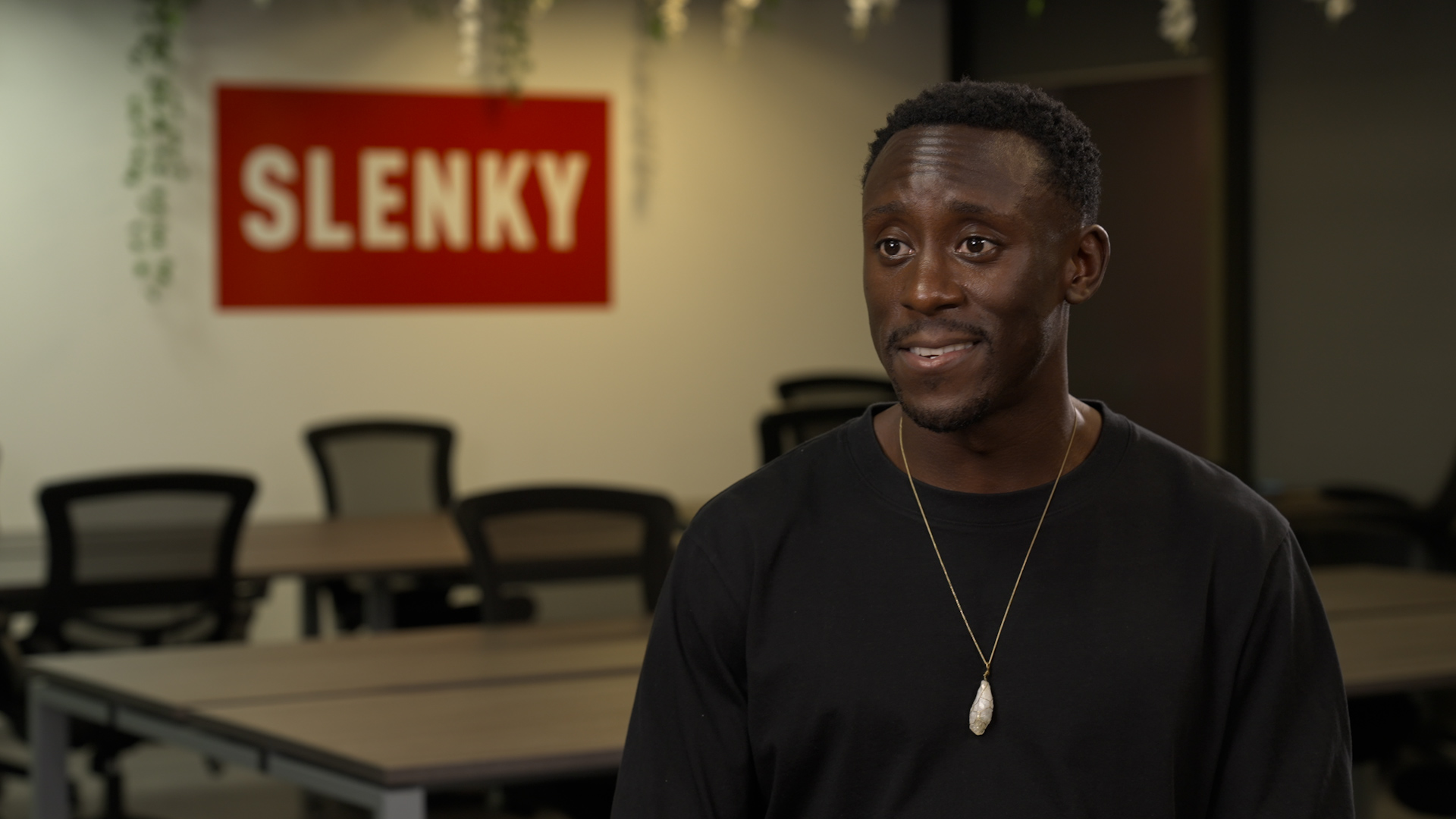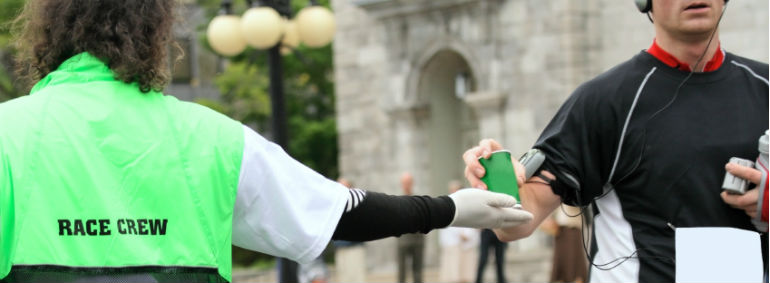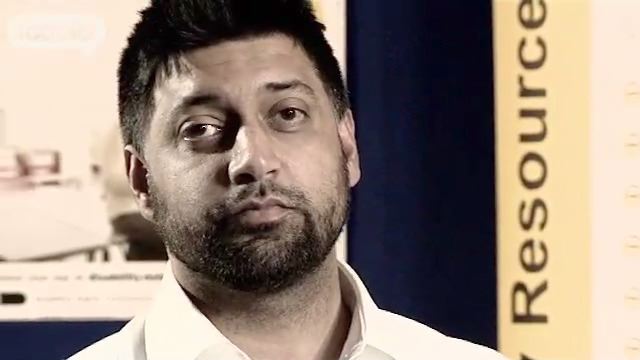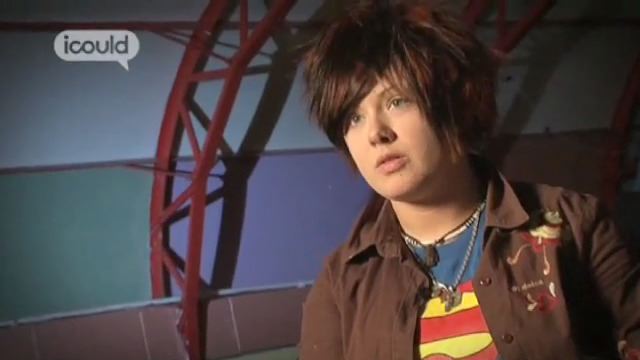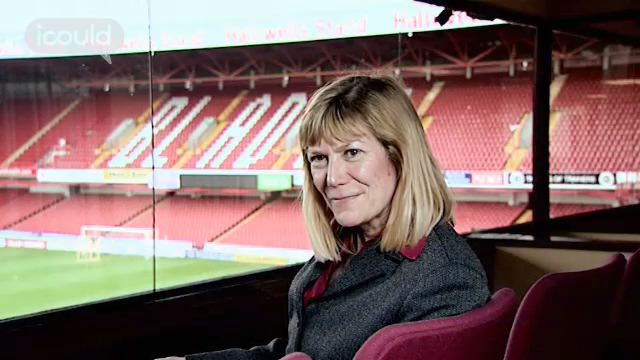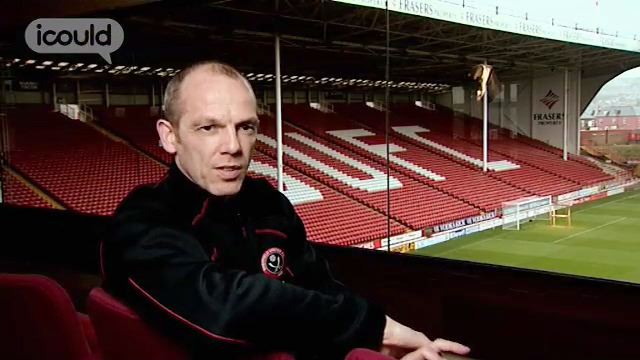Chair of Birmingham Access Committee
Disability Alliance
Irene W
0.00.03 My name’s Irene W and I’m retired now although now since I’ve been retired I could do with there being 10 days in the week. And I’m glad I’m busy because it helps keep me young. I’m chair of Birmingham’s Access Committee which has been running for more than 25 years. And in the end of this month, in January, we will have been running Birmingham Shopmobility for 10 years so it will be our 10th birthday. So it’s going quite well.
00.00.36 My disability has come later in life but I’ve always lived with disability. My mother, her sister, my grandmother were all born deaf. My best friend as a child although I didn’t realise had downs syndrome because to me he was just my friend. And then I have a cousin who was born deaf-blind. So I’ve been used to disability all my life in one way or another and never seen it as a barrier. Never seen it as something that means you can’t do something because I have actually since being disabled been told, ‘Well no, she can’t do that job. She can’t do that job. She won’t be able to do that’, and all that happens is it just makes me more determined and I do do it. And so proud of when I’ve been able to say, ‘You were wrong’.
00.01.31 I had a very nasty fall which accelerated a problem that I’d got, it was going to happen anyway. I’d been a dancer and apparently it was something that’s been brought on by having, doing such a lot of dancing right from when I was 3. Then they take a lot damage and it then can cause problems in later life which it has done. But it wouldn’t make me stop doing what I’ve done. If I knew now what was going to happen it wouldn’t have stopped me doing what I did because my life is just as full now as it ever was.
00.02.07 In fact, probably more so. And I don’t think anybody can not progress by using every little bit of determination that you’ve got. Don’t let anybody put you down. I received my MBE for services to disabled people in Birmingham. And I didn’t expect it. It was something that I really didn’t think I’d worked hard enough for but they tell me I did. And I was so surprised that the Queen knows so much about you and I just explain to anyone. And you’re supposed to come backwards and I was just so overawed I turned round and just went straight off and felt so embarrassed.
00.03.05 But apparently I’m not the first person to do it and won’t be the last. So but yes, absolutely wonderful experience and not something I expected. My cousin who was born deaf-blind who’s much older than I am, there was education, there was no organisation sense when she was a child. That’s change. So there are some changes that are happening. We’ve still got an awful long way to go but I think now instead of the harsh demonstrations that we used to have to I think now we just need to go knocking on the door and trying to get some sort of communication going because I do think that it’s important.
00.03.49 The only way we’re going to make changes now is via communication and letting people see how we are valuable people and I think that’s very important. And the main word being people.
Irene W is chair of Birmingham’s Access Committee. She has received an MBE for services to disabled people. “The only way we’re going to make changes now is via communication and letting people see how we are valuable people and I think that’s very important. And the main word being people.”
More information about Welfare professionals n.e.c.
The UK average salary is £29,813
There are 37.5 hours in the average working week
The UK workforce is 47% female and 53% male
Future employment
- Provides activities to assist young people develop and fulfil their potential as individuals and within the community;
- Advises and supports families experiencing stress or crisis;
- Acts as an advocate for and represents individuals and families at tribunals and similar hearings;
- Oversees, supervises and provides counselling for the process of adoption;
- Mentors and counsels those with mental health problems;
- Provides rehabilitation services to individuals;
- Manages volunteers and part-time workers, and liaises with other relevant professionals;
- Keeps records and controls budgets.
